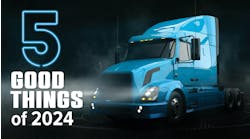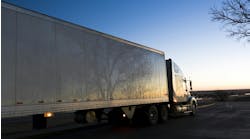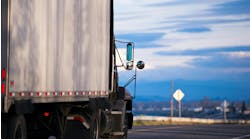Peter Karlsten, president and CEO of Volvo Trucks North America, expressed confidence in Volvo’s 2007 engine emissions solution during an interview at the recent ATA Conference & Exhibition in Boston. “Our customers know we are doing everything we can to make 2007 a non-event,” he noted. “Volvo has the resources and the know-how to meet these new emission standards, so we see this as an opportunity to bring a new generation of engines to market. We are confident and we want our customers to share our confidence.”
According to Karlsten, Volvo expects the new engines to maintain the fuel economy level demonstrated by the current Volvo D12 and to continue to deliver excellent performance and reliability. The company plans to give customers and dealers the opportunity to test the new engines for themselves in the first quarter of 2006.
“Volvo has a clear vision and plan for bringing these new engines to market,” he said. “We are where we need to be with our testing and development.”
Karlsten also noted that Volvo did not expect to see problems with either cooling or with the required periodic cleaning of the particulate filter. “We are not seeing problems with cooling now that we aren’t handling,” he said, “and today’s engines were designed with 2007 in mind.” Ash will likely have to be cleaned out of the particulate filter about every 150,000 miles, 4,500 hours or about every one and a half years, according to Karlsten, at an expected cost of about $150 per cleaning.
Karlsten was also bullish on the economic future for the industry, at least for the next several months. “2005 has been a good year for everyone, for our customers and for our suppliers, too,” he said. “We also expect 2006 to be a good year. We are not seeing a lot of 2007 pre-buying going on yet and we hope we don’t see much. It is better for everybody if companies maintain their normal trade cycles.”
Taking a long-term look at engine emissions, Karlsten was likewise optimistic. “Everyone wants to help assure that our children and grandchildren will have clean air to breathe,” he said. “So the sooner the new engines are in use, the cleaner we’ll be.”


